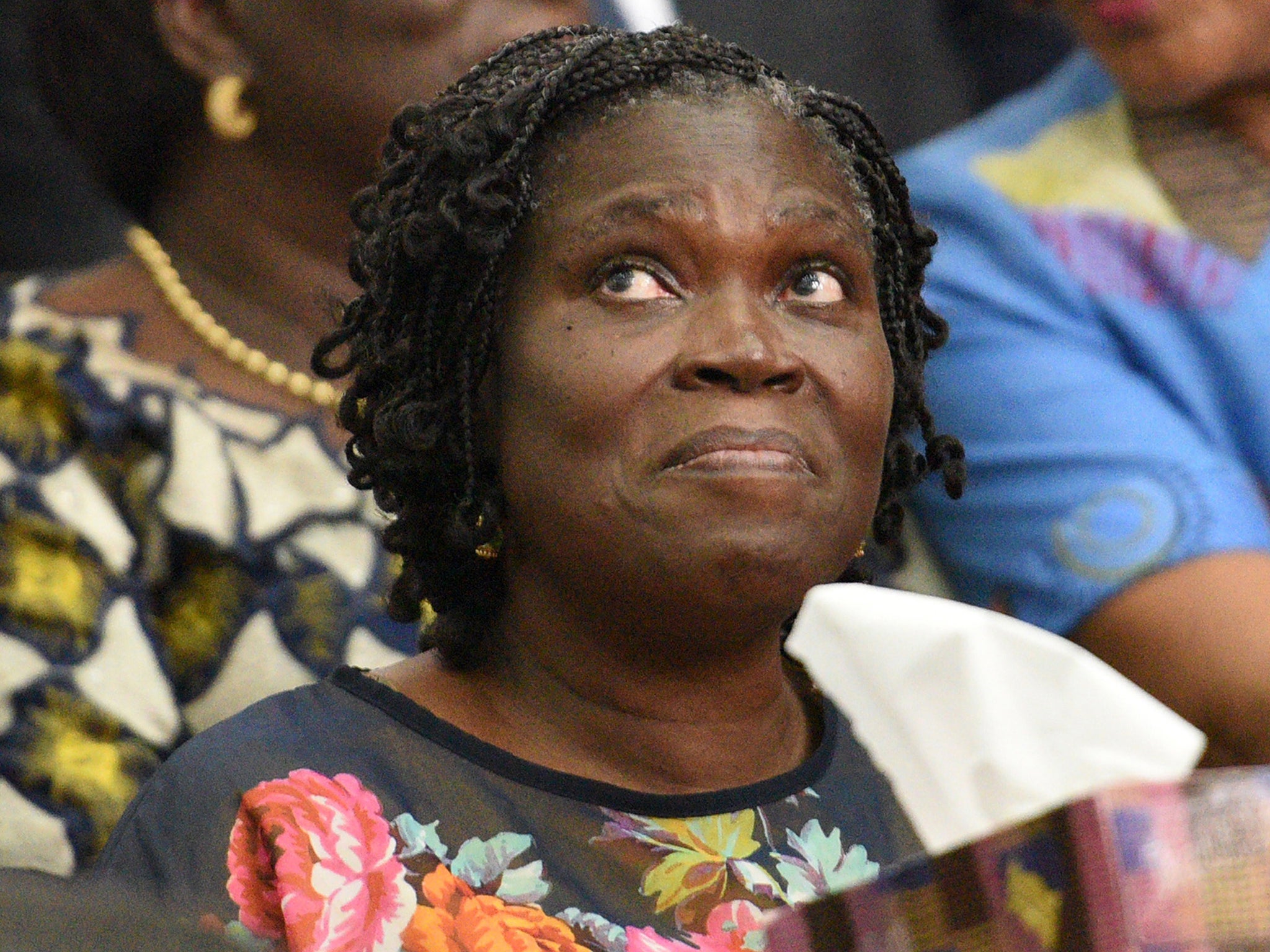Simone Gbagbo, former Ivory Coast first lady, sentenced to 20 years in prison
Post-election violence claimed the lives of over 3,000 people

Your support helps us to tell the story
From reproductive rights to climate change to Big Tech, The Independent is on the ground when the story is developing. Whether it's investigating the financials of Elon Musk's pro-Trump PAC or producing our latest documentary, 'The A Word', which shines a light on the American women fighting for reproductive rights, we know how important it is to parse out the facts from the messaging.
At such a critical moment in US history, we need reporters on the ground. Your donation allows us to keep sending journalists to speak to both sides of the story.
The Independent is trusted by Americans across the entire political spectrum. And unlike many other quality news outlets, we choose not to lock Americans out of our reporting and analysis with paywalls. We believe quality journalism should be available to everyone, paid for by those who can afford it.
Your support makes all the difference.Simone Gbagbo, the former first lady of the Ivory Coast, was sentenced to 20 years in prison on Tuesday in relation to violence that killed over 3,000 people in 2010.
The 65-year-old wife of former President Laurent Gbagbo was found guilty of undermining state security, disturbing public order and organising armed gangs in the aftermath of the country's election five years ago.
Her husband refused to concede defeat to Alassane Ouattara in late 2010, leading to post-election violence that claimed the lives of over 3,000 people. The Gbagbo pair were eventually arrested in 2011 after troops stormed a bunker in the city of Abidjan.
Laurent Gbagbo is awaiting trial at the International Criminal Court in The Hague for crimes including rape, murder and persecuting political opponents during his decade-long reign of the Ivory Coast.
State lawyer Soungalo Coulibaly said, "We have shown that impunity cannot continue in Ivory Coast".
Gbagbo's lawyer claimed that the decision was a "purely political decision to keep her out of the political game".
Both sides in the post-election violence have been accused of atrocities that saw shell- and rocket-fire exchanges in Abidjan. Ouattara remains President of the Ivory Coast.
Additional reporting by the AP.
Join our commenting forum
Join thought-provoking conversations, follow other Independent readers and see their replies
Comments